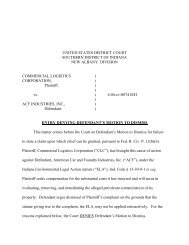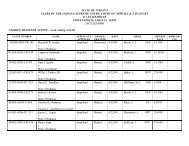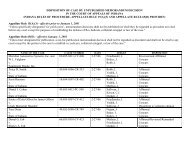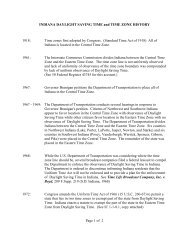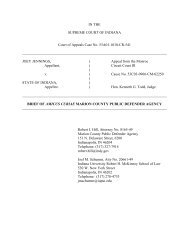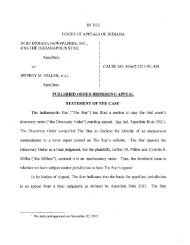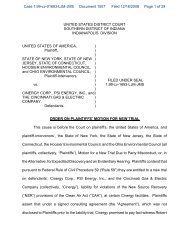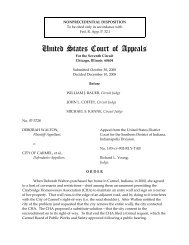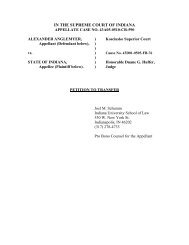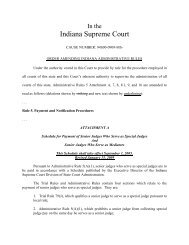Richard L. Barnes v. State of Indiana
Richard L. Barnes v. State of Indiana
Richard L. Barnes v. State of Indiana
Create successful ePaper yourself
Turn your PDF publications into a flip-book with our unique Google optimized e-Paper software.
At the close <strong>of</strong> the <strong>State</strong>‟s evidence, the trial court granted <strong>Barnes</strong>‟s motion for a<br />
directed verdict on the interference with the reporting <strong>of</strong> a crime charge. The jury found<br />
<strong>Barnes</strong> guilty <strong>of</strong> the remaining charges.<br />
The trial court ordered <strong>Barnes</strong> to serve a<br />
suspended sentence <strong>of</strong> 180 days for each conviction to be served concurrently. <strong>Barnes</strong><br />
now appeals. 1<br />
I. Refused Jury Instruction<br />
The proper instruction <strong>of</strong> the jury rests within the sound discretion <strong>of</strong> the trial<br />
court, and we review its decisions for an abuse <strong>of</strong> discretion. Wilson v. <strong>State</strong>, 842 N.E.2d<br />
443, 446 (Ind. Ct. App. 2006), trans. denied. Jury instructions are to be considered as a<br />
whole and in reference to each other, and the trial court‟s ruling will not be reversed<br />
unless the instructions, taken as a whole, misstate the law or mislead the jury. Snell v.<br />
<strong>State</strong>, 866 N.E.2d 392, 396 (Ind. Ct. App. 2007). Further, any error in the refusal <strong>of</strong> a<br />
tendered jury instruction is subject to a harmless-error analysis: before a defendant is<br />
entitled to a reversal, he must affirmatively show the error prejudiced his substantial<br />
rights. Id.<br />
The purpose <strong>of</strong> a jury instruction “is to inform the jury <strong>of</strong> the law applicable to the<br />
facts without misleading the jury and to enable it to comprehend the case clearly and<br />
arrive at a just, fair, and correct verdict.” Overstreet v. <strong>State</strong>, 783 N.E.2d 1140, 1163<br />
(Ind. 2003). “A trial court erroneously refuses to give a tendered instruction, or part <strong>of</strong> a<br />
tendered instruction, if: (1) the instruction correctly sets out the law; (2) the evidence<br />
1 We heard oral argument in this case on March 23, 2010, at the <strong>Indiana</strong> University School <strong>of</strong> Law –<br />
<strong>Indiana</strong>polis. We extend our thanks to the students, staff, faculty, and administration for their hospitality,<br />
and we commend counsel for the quality <strong>of</strong> their written and oral advocacy.<br />
4



